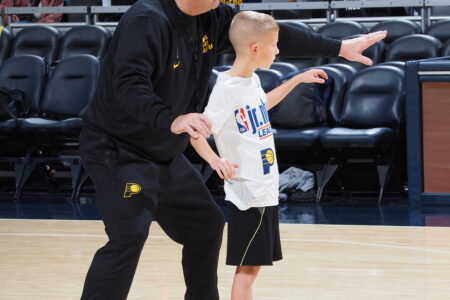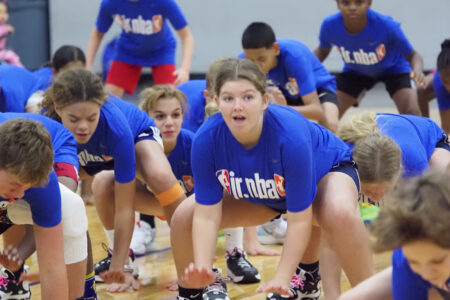Everything You Need to Know About the Coaches Code of Conduct
13 July 2022
As a coach, you already know the importance of being a good role model for youth athletes. Whether you’re dealing with a frustrated parent on the sidelines or disagreeing with an official’s call, you have to remain a steady leader for your team. Always.
But what exactly does that look like when you’re in the middle of a big game and emotions are running high?
To help guide you, the Jr. NBA created a coaches code of conduct that you can turn to throughout the season. Here’s a breakdown of each point and how you can apply it to your role as coach.

10 Rules in the Coaches Code of Conduct
1. Respect the golden rule
Treat your players, their parents, and the officials in the same manner you want to be treated.
After all, to gain respect, you must give it.
2. Be everyone’s coach
What’s the saying? There’s no I in team. Make sure every player can contribute—that goes for your own kid, too, if you’re coaching your child. Be sure to give everyone a chance to shine, and treat every player the same.
3. Appreciate your assistants
No coach can do it all—everyone needs a knowledgeable assistant to lean on. Find a good assistant or two, give them responsibility, and never stop thanking them.
4. Focus on fundamentals
Youth basketball is about the basics. Sure, you want to rack up a few wins along the way, but your main goal should be teaching your players the fundamental skills they need to progress to the next level.
5. Teach and enforce good sportsmanship
Youth athletes tend to need a reminder about good sportsmanship—no trash talking or taunting. Teach them how to behave on and off the court, and how to develop a positive relationship with officials. Don’t be shy—if you feel they need a push, enforce sportsmanship. It goes a long way.
6. Understand the rules of the game
To put it simply: read the rule book. Be aware of any special policies your league has adopted. Think about it—you can’t expect your players to know the rules if you don’t.
7. Have a positive rapport with the officials
Don’t be afraid to ask questions if you need clarification on a play or rule, and be sure to set the right tone for your team by never arguing with an official.
8. Promote fun
More than anything, youth athletes want to have fun, build friendships, and just play. If they are having fun, you aren’t doing anything wrong.
9. Be patient
Young players won’t understand the game right away. They’ll miss shots. Make crucial turnovers. Commit countless fouls. But give them the freedom to make mistakes. It’s your job to help them learn from them—and that will require a little time and patience.
10. Talk to the parents and understand their goals
Talk to the parents of your players and explain your coaching philosophy right from the get-go. Give parents an opportunity to discuss any concerns with you and make sure every player on your team is able to make a contribution.







